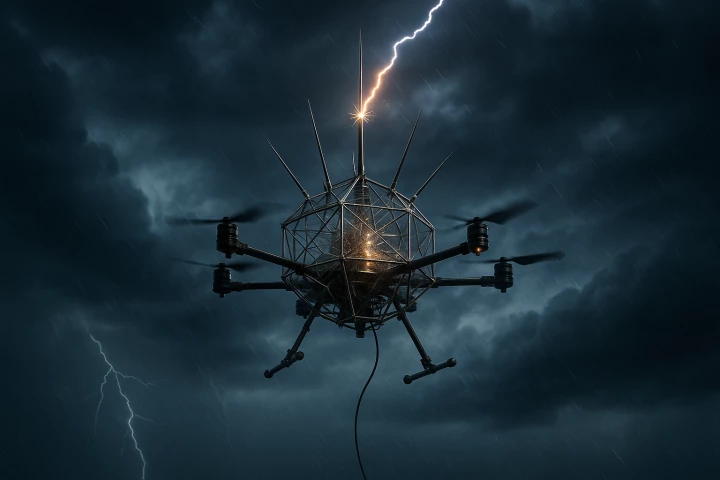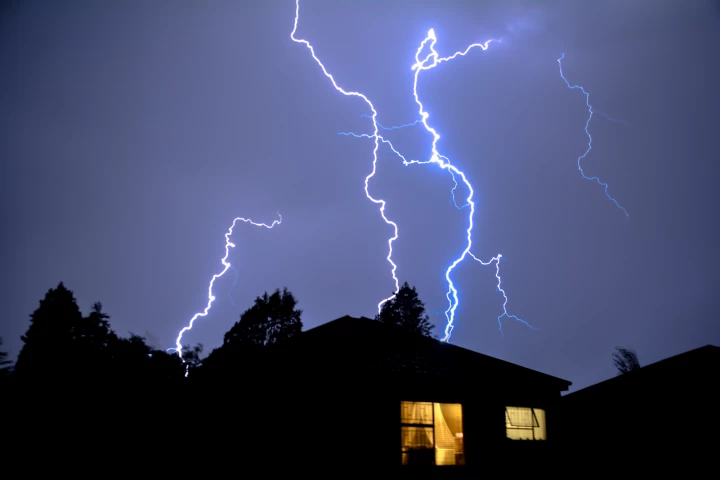Lightning
-
Each year lightning kills hundreds of millions of trees worldwide, leaving behind scorched trunks and shattered branches, but one species of tropical tree in Panama has turned this destructive force of nature to their advantage.
-
In a world first, Japanese researchers flew a lightning-proof drone in a thunderstorm, using it to induce and direct natural lightning strikes. The team is now working on how this flying lightning rod might capture and store lightning energy.
-
Dr. Frankenstein might not have needed a lightning bolt to bring his monster to life after all. A new study from Stanford suggests that life might have been kickstarted by constant zaps from “microlightning” between water droplets.
-
Thor and the Hulk may be more closely related than we thought. Thunderstorms are known to produce gamma rays in the atmosphere, but a new study has found that not only do they happen way more often than we realized, but they’re much weirder.
-
Do you live in a lightning hotspot? A new set of maps shows just where all that discharged electricity makes contact with the ground across the United States each year. Tip: If you're worried about getting hit, you might want to skip Florida.
-
The eruption of Tonga’s Hunga Volcano on January 15, 2022, produced a record-breaking amount of lightning. The information gathered about the eruption can be used to better monitor aviation-related hazards arising from these sorts of eruptions.
-
It sounds like a superhero's origin story: scientists have discovered a new type of material created after lightning struck a tree. This particular form of crystalline phosphorus has never been seen on Earth, and could belong to a new mineral group.
-
Scientists have demonstrated a more advanced lightning rod than a humble metal stick. Beaming a high-powered laser into the sky was shown to deflect lightning bolts, enabling laser lightning rods that protect a wider area from dangerous strikes.
-
Scientists are claiming to have solved a longstanding mystery around why lightning takes on a zigzag shape as it flashes across the sky, pinning it on high-energy molecules responsible for redistributing electrical fields.
-
Fascinating new research from atmospheric scientists at Penn State University has found during thunderstorms, electrical discharges on tree leaves can generate significant volumes of chemicals that may affect the air quality in surrounding forests.
-
The best bits of thunderstorms often happen above the clouds. Scientists have now described in detail the most powerful “gigantic jet” of lightning ever observed, which blasted energy equivalent to 60 regular lightning bolts upwards into space.
-
A lightning strike that lit up the sky across three US states has been confirmed as the longest on record, with the World Meteorological Organization (WMO) today certifying the 768-km (477-mile) length of the flash that occurred back in April 2020.
Load More











